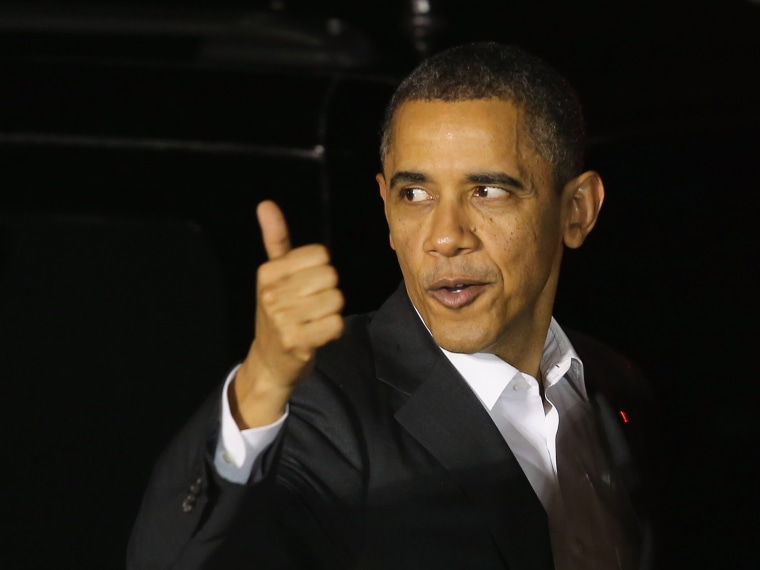"Study finds 'liberals' more likely to favor targeted killings once they know it's Obama's policy," reads the subtitle of a Tuesday article from Salon's Joan Walsh. Needless to say, opponents of the president's targeted killing program have been passing the story around Twitter, arguing that it confirms their prior suspicions: Liberals are willing to accept the unacceptable out of blind support for their president.
In reality, these findings might not be so revelatory or so damning. For one thing, Walsh notes that the political scientist who conducted the survey "didn’t refer specifically to American citizens, or the precise operational details of the broader 'kill list,' or the use of drones to do the killing." And for another thing, it should surprise no one that most Americans are more likely to support particular policies if they trust the leaders who are seen to execute those policies.
In fact, many liberals who defend the president's targeted killing program are remarkably forthcoming about the role their trust in Obama plays. The Cycle's Krystal Ball has said as much on this very network—and she has pointed out, correctly, that there is nothing hypocritical about trusting one political actor more than another political actor. If one were to feel comfortable giving targeted killing powers to President Obama but not to President Romney, there would be nothing inherently inconsistent in her position.
As a result, those who find the targeted killing program abhorrent are going to have a hard time waving that position away. When they treat it as obviously ridiculous, deserving of no response but mockery, they do their own position a disservice. The truth is that it's not obviously ridiculous to support targeted killings when you trust the man ordering them—it is a terrible mistake, yes, but for reasons that merit an explanation.
The most important and obvious objection to the argument from trust is that Obama will not be president forever. Yet the institutions being created to preside over targeted killings will last indefinitely: years, if not decades. The odds that a Republican president will one day preside over the disposition matrix are exceedingly high. That a Republican president will one day have the power, based on legal precedent to execute American citizens at will, based on hazy evidence of a potential threat—that's virtually inevitable.
More to the point, trust in President Obama—or any individual actor—has very little to do with how the program is being carried out right now. Words like "Byzantine" are woefully insufficient when it comes to describing the machinations of the modern national security state. (Washington Post investigative reporter Dana Priest got close to articulating the full extent of the system's complexity when she wrote, "the system put in place to keep the United States safe is so massive that its effectiveness is impossible to determine.") No man, least of all an American president with other demands on his time, is physically capable of sifting through all of the disparate intelligence that goes into making life-or-death security decisions. Instead, President Obama has to rely on a vast bureaucracy, staffed with people who have their own biases and incentives.
The claims these institutions make should be regarded as inherently untrustworthy, regardless of how much we may trust various people to those institutions. In the past 15 years it has become clear that failing to eliminate threats is extremely high cost (everyone remembers that the Clinton administration missed a chance to kill Bin Laden in 1998), while civilian casualties are extremely low-cost (most voters do not seem particularly distraught over the hundreds of civilian casualties from U.S. drone attacks). So from an institutional perspective, the risk of killing civilians means little when weighed against the risk of not killing a potential threat.
That's exactly why we can't take Brennan's claim that targeted killings are "a last resort" at face value. The only way to ensure that the national security state does not abuse its power is to substantially limit its power—or, at the absolute least, to subject it to strict civilian and judicial scrutiny. There is little doubt that the Obama administration would resist that kind of oversight, but whether the man at its head is personally trustworthy is neither here nor there.
